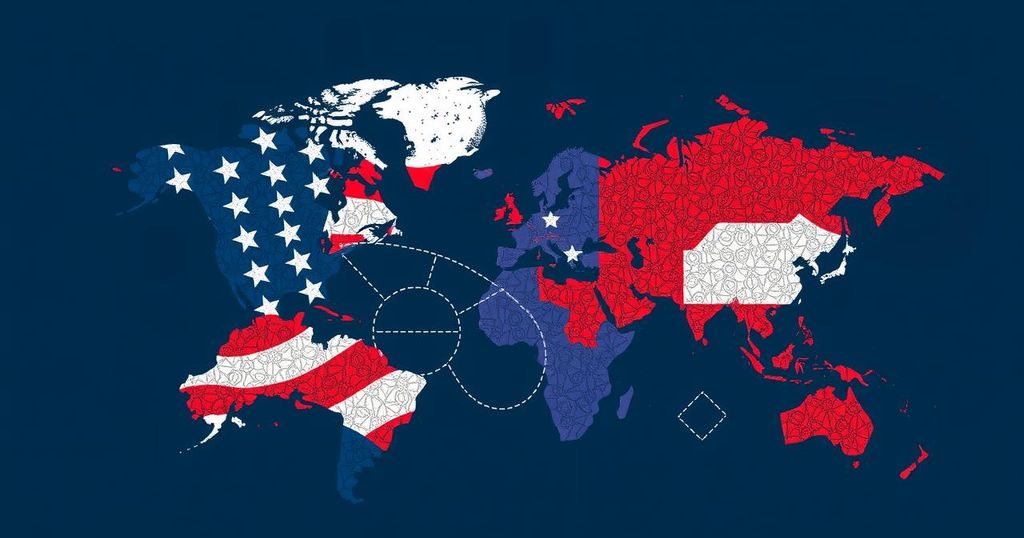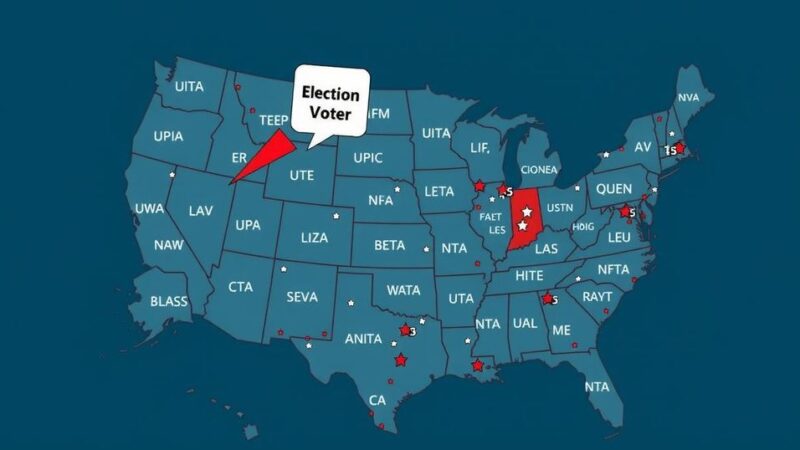The U.S. presidential elections on November 5 are crucial, as leading candidates Kamala Harris and Donald Trump display troubling commitments to far-right policies and militaristic agendas. Despite the potential global implications, both candidates support continued military assistance to Israel and reject international human rights findings. This election may further entrench extreme nationalism and environmental neglect on a global scale, with significant repercussions for the Caucasian bloc and beyond.
As the United States approaches its presidential elections on November 5, the prevailing political atmosphere is markedly fraught, raising concerns not only domestically but also internationally. The leading candidates, Vice President Kamala Harris representing the Democratic Party and former President Donald Trump from the Republican Party, are appealing to an electorate of over 160 million registered voters. This election is regarded as potentially the most significant in decades, particularly due to its implications for global stability, given that the U.S. stands as a powerful influence in the Caucasian bloc and beyond. However, it remains uncertain whether these candidates provide contrasting visions for America’s international role. Both Harris and Trump have exhibited far-right political tendencies, particularly in their support for ongoing conflicts involving Israel, despite the humanitarian crises unfolding as a result. Harris, while verbally advocating for the cessation of hostilities, has clarified through aides that limitations on military assistance to Israel would not be enforced; meanwhile, Trump’s Republican base adamantly opposes any restrictions on arms supply. Both major candidates dismiss the rulings of international bodies, including the International Court of Justice, disregarding extensive evidence presented by human rights organizations that identify Israel’s actions in Palestine as apartheid. This perspective is inversely reflective of America’s historical treatment of marginalized communities and its ongoing xenophobia towards migrants, increasingly evident in both candidates’ commitments to stricter immigration controls. Furthermore, both Harris and Trump have signaled intentions to perpetuate U.S. non-compliance with critical international agreements, showing a disinterest in addressing climate change, instead favoring environmentally harmful policies such as fracking. This culminates in a contradiction as they simultaneously project American exceptionalism on the global stage while promoting isolationist attitudes within domestic political discourse. The ramifications of this election are likely to reverberate through the Caucasian bloc and could catalyze the further entrenchment of extreme right-wing ideologies, exacerbating environmental degradation and heightening geopolitical tensions across the globe. Without addressing these issues, leaders may inadvertently allow historical tribal conflicts to reignite, compelling a global response.
The upcoming U.S. presidential election is poised to be a pivotal moment affecting not only domestic political landscapes but also global relations. The candidates, Kamala Harris and Donald Trump, represent two distinct factions within American politics, yet their policies and political inclinations reveal a concerning continuation of extreme nationalist views. With a majority of the global populace observing America’s actions and their implications, it becomes essential to reflect on how these politics will shape not only American society but also international engagements and perceptions towards the U.S.
In summary, the upcoming U.S. elections on November 5 are indicative of broader systemic challenges, with both candidates reflecting troubling trends in American politics that prioritize nationalist and militaristic agendas over global humanitarian considerations. As international scrutiny and criticism mount, the implications of America’s electoral decisions could reshape geopolitical dynamics and encourage the further proliferation of extreme nationalism globally. Such developments warrant attention and discourse as the world contemplates the future of international cooperation and humanitarian values.
Original Source: www.aljazeera.com






